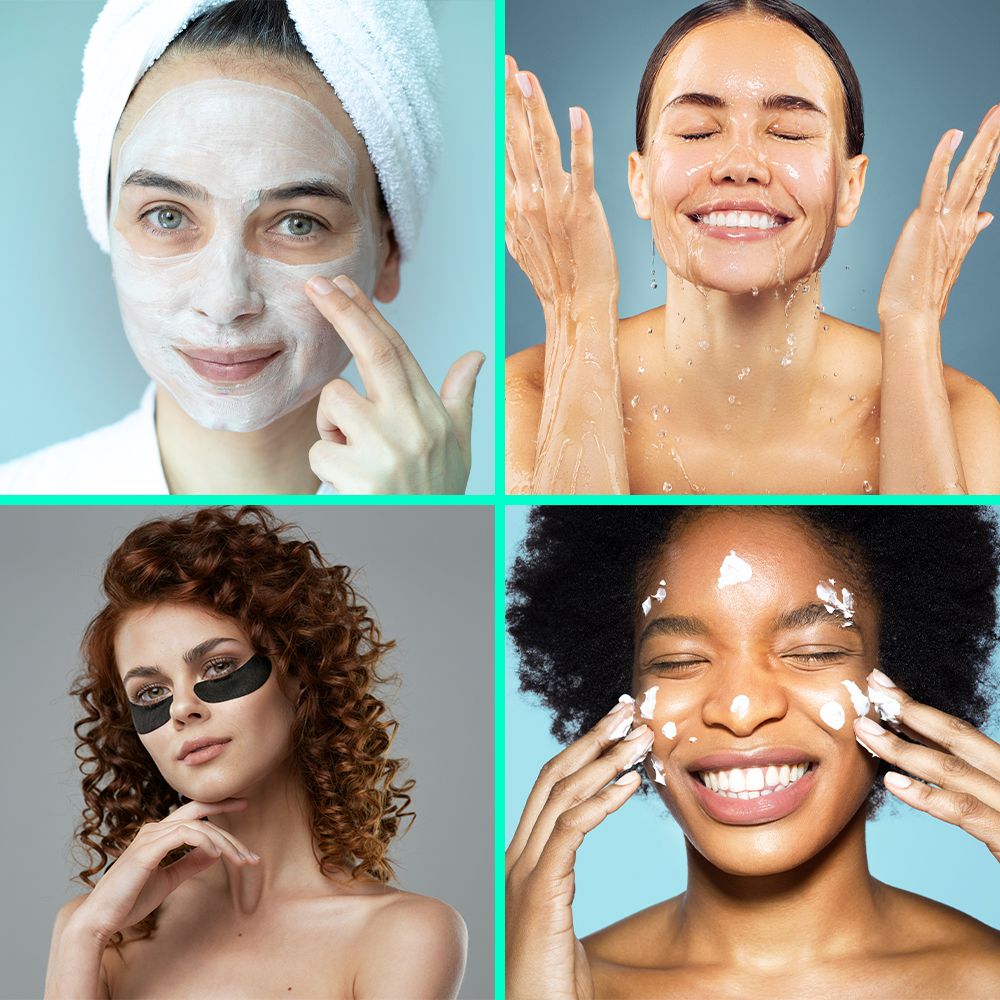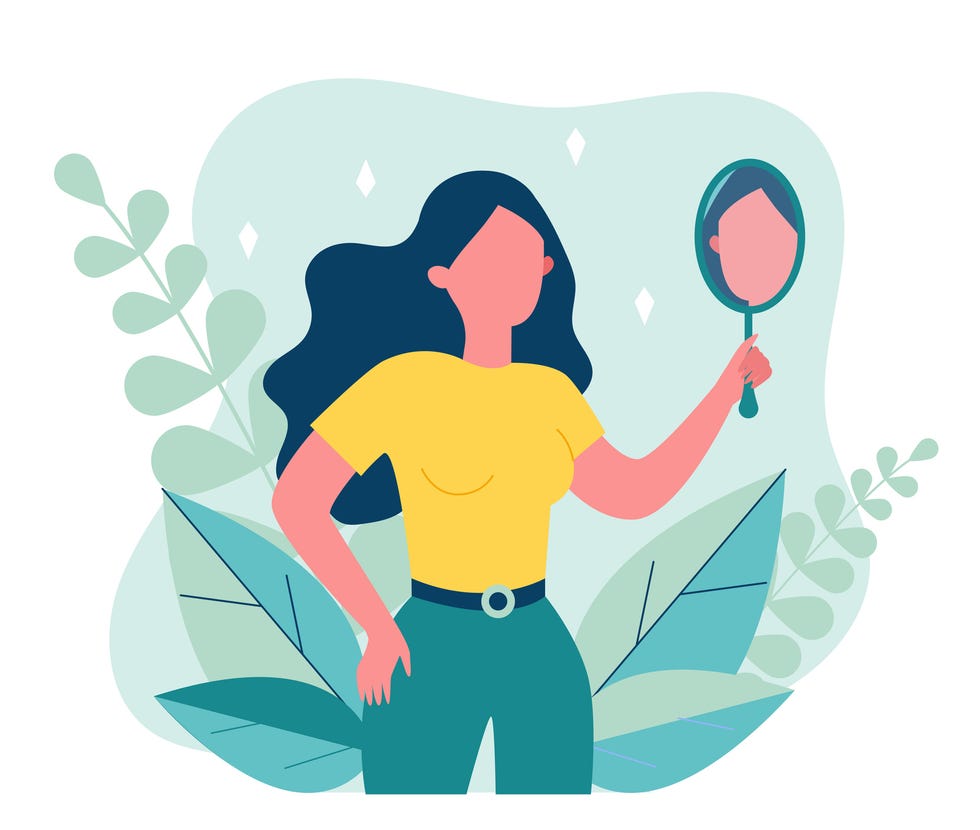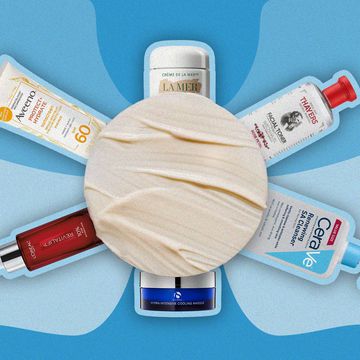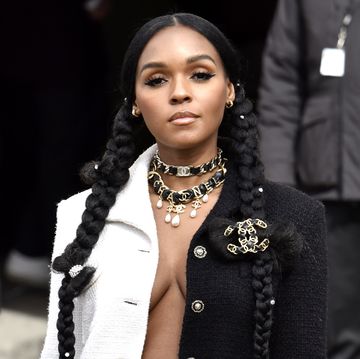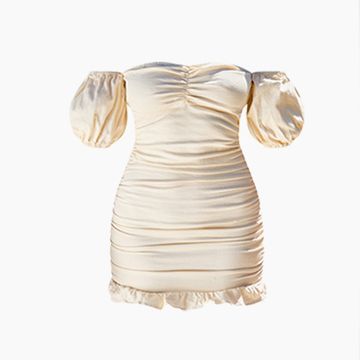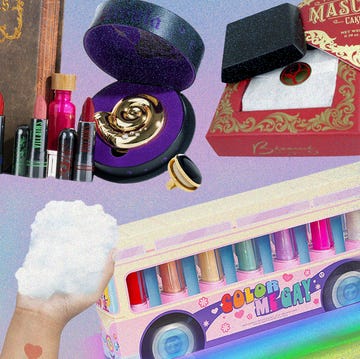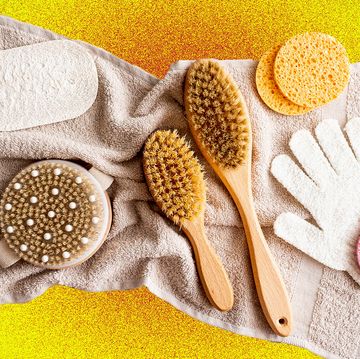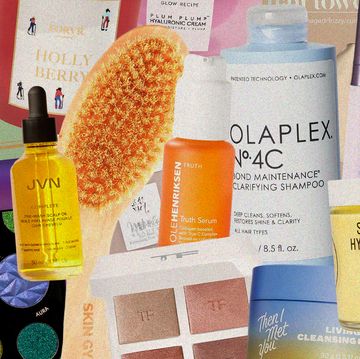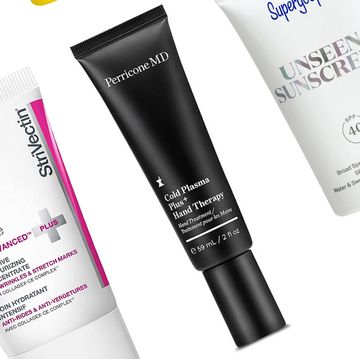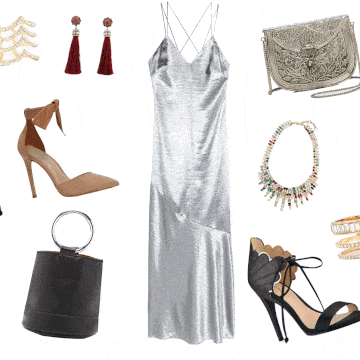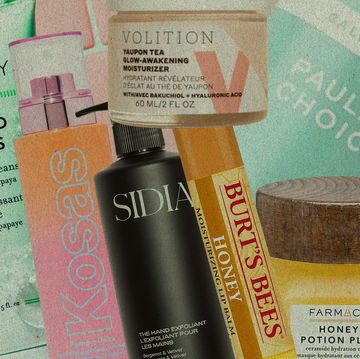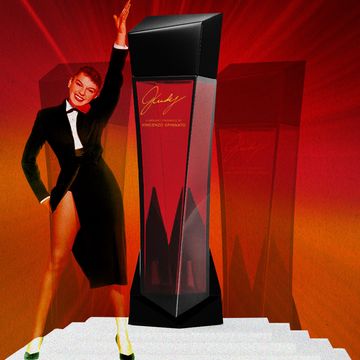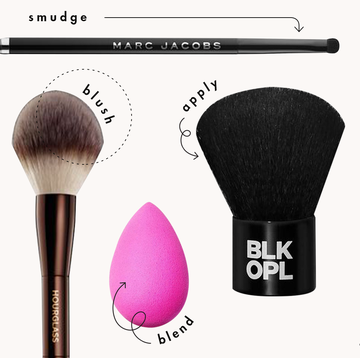I never had a fraught relationship with my face. And yet, I’ve had periods when I waged war on skincare products that seemed to make my face redder, coarser, or bumpier. My Turkish dad’s skincare advice is that regular soap can be better than Clinique, so I resorted to using $6 drugstore hand soap on my skin, which — oddly enough — has allowed me to post unfiltered selfies on Instagram that received a bunch of heart-eye emojis.
But my relationship with my face was never that simple. It was beyond the skin and the flesh and the veins and the blood. It was rather an extension of a never-ending conversation I have with society through constant and unsolicited feedback about the way I look.
“You are beautiful,” my first boyfriend told me. “But you’d be so hot if your nose was just a little... You know?” My sophomore year in high school, one of my friends back in Turkey penned the nickname “Zlatan” for me. She listed the similarities between the 6-foot-5 soccer player, Zlatan Ibrahimovic, and 5-foot-6 me. Besides being from the same region of the world, Ibrahimovic and I had only one thing in common: our large hooked nose.
The nickname Zlatan stuck. Boys called me Zlatan; one of them even said he’d only give up calling me that once I got my nose done. Friends’ parents called me Zlatan, too, as a joke, and I laughed it off. The entitlement to make such a comment was embedded in the culture, I knew, and as a 16-year-old, I felt powerless.
When we were in college, one of my best friends went under the knife, and our childhood group paid her a visit. Your nose looks great, we told her, but it’s always looked good. “Ah, it didn’t,” she shook her head as much as her post-surgery headache allowed: “It used to have this weird bump, right over there.” She pointed at her now bandaged nose. We nodded and talked about how we would get our noses done. A tiny knife-work there on the tip for a slight lift or an entirely new nose, and we all agreed that we’d get Botox too — eventually.
Three years later, at age 25, I found myself at a glitzy dermatologist in midtown Manhattan because of a rosacea flare-up that simply didn’t go away. “I want to talk about this,” I pointed at my forehead. Before I could even tell my doctor about this newly-emerged brown dot on my skin, he shook his peppered hair and showed me a set of blindingly-white teeth contrasting his off-season tan.
“I wanted to talk to you about that, too,” he said. “You are too young to have those lines. I suggest Botox ASAP.” It would be $750 per session and of course, I’d have to get it done every three to four months. “Would you ever consider Botox?” he asked at the end of his pitch. I had, I told him, but was thinking maybe I could do it 15 years from now.
Botox is more effective if you start early on, he said. I walked out with a $150 rosacea BB cream that I have yet to use and ordered a glass of rosé at a bar across the street. $3,000 annually for the rest of my life, I sighed as I took a sip and thought about what expenses I could cut in my life to create a Botox budget. By the time I was done with my drink, I had given up.
This year, after not seeing a single soul for two months during the Covid-19 quarantine, I met up with two friends at Prospect Park, a mask on each of our faces. We complained about our tumultuous mood swings and pandemic bellies. “I’m also recognizing these new lines on my face,” one of them said. Her index finger then aimed at her husband's face she laughed: “Look at his, too!” I can’t see them from where I sit, I told her — from a distance that we had decided was at least 6 feet. “Pshh,” she dismissed me: “I can see them.” The husband shrugged with a smile.
When everything moved online, I had to fight the urge to apologize to people for the way I looked: unpolished. And I still apologized quite a few times. I didn’t put on a lot of makeup before the pandemic anyway (I was unfortunately never talented enough to successfully achieve a contour or a smokey eye) — but I liked my daily mascara and under-eye concealer, a habit I picked up once I turned 26. If it was a good day, I also dabbed some glittery eye shadow on my lids and highlighter on my collarbones.
It wasn’t until the second month of the quarantine that I had a moment with myself, following thousands of humdrum minutes I had on my own in my one-bedroom apartment. I was going to the park by myself so I reached out for my mascara — the one that gives me killer-long eyelashes — and I caught my reflection in the mirror. I looked ... good.
My skin was paler than usual but soft, my eyelashes were longer than I remembered them even with mascara on, and my eyebrows were surprisingly thicker than they had always been — in an ungroomed, Cara Delevigne-way. I was so surprised to be content with my naked face, which had always somehow felt empty without a touch of makeup, that I called my best friend in Istanbul to put a meaning on all this.
“So strange… I feel the same way about my eyebrows, too,” she said from seven hours ahead. We speculated — maybe it’s because we don’t see the sun as much anymore? — but we couldn’t find a solid reason why we were, ahem, feeling ourselves other than, perhaps, we were finally taking the time to truly get to know ourselves during an unexpected stretch of solitude.
After I hung up, I put on my cream-colored silk mask, which – people have argued – looks as if I have expensive lingerie stretched across my face, and left my apartment without a retouch.
The pandemic changed my body in ways that I did not expect when shelter-in-place was first announced in New York. I grew patches of eczema, I get weird rashes I can’t explain, and sometimes I sit for so long that it almost feels as if I have to learn how to walk again. I have friends whose acne returned, and know of people who have longer menstrual cycles or worse cramps. Yet, for some of us, a pandemic can be a catalyzer of melancholy and simultaneously a challenge of acceptance: accepting the virus, the scale of the crisis, the future, the past, and at times, ourselves. I still put on makeup once in a while to feel fancier and better, and it does lift my spirits up when I, otherwise, would have been grumpy on my cheap couch.
Just recently, however, I went through my makeup shelf to inspect when some of the items would expire and I ended up throwing out a few of the items. Eye shadows go bad in six months, mascaras apparently have an even shorter lifespan. I saw that instead of being the tools of a daily reflex, my brushes, colors and glitters had become the gateway to my past self, to a sense of normalcy that is now lost. And yet, I didn’t feel sadness at that. On the contrary, I almost felt a relief that I’d allowed myself a break from the hold all those tools and tricks held on how I saw my face and ultimately how I saw myself.
The news that beauty sales have decreased in 2020 comes as a surprise to me. I find solace in thinking that I may not be alone on my journey to start a new relationship with beauty, one that prioritizes me — with or without makeup.
Each morning, I give my face a quick spritz of rose water from my home country, Turkey, and take a moment to appreciate the canvas that is my face. I look at the nose, the lines, the scar of a popped pimple, the nude eyelids, and the dark brown eyelashes that are touched with a hint of blonde at the tips. I’d rather not feel the way I do at times, oddly inadequate during a global crisis, but I am trying to be kinder to my face. For all the times that I thought I had to hide a part of it while presenting myself to the world, I am now letting my face do whatever. Some days that involves sitting at home with puffy eyes, some days it is smearing a touch of pink on my lips. Both remind me that I am what I have, and it is a blessing to be alive.
Deniz Çam is a reporter based in New York City. She also writes essays and performs comedy inspired by her being a Turkish immigrant in the U.S. You can check out her work on her Medium and follow her on Twitter @DenizCam.
Get Shondaland directly in your inbox: SUBSCRIBE TODAY
